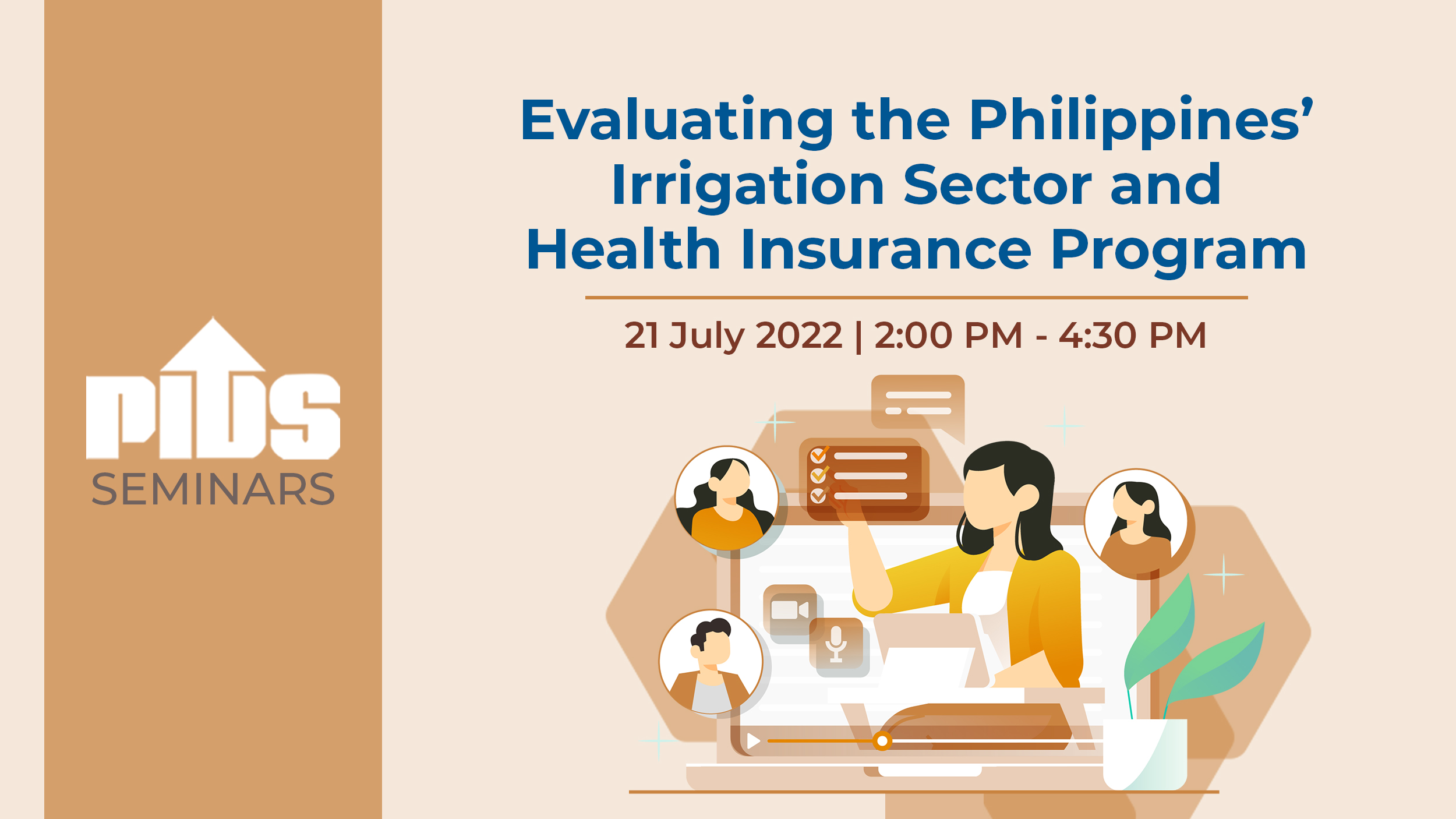The Philippine Institute for Development Studies (PIDS) will hold a public webinar on July 21, 2022, from 2:00 PM to 4:30 PM via Zoom.
There will be two presentations. The first presentation will feature the highlights of the PIDS book “Revitalizing Philippine Irrigation: A Systems and Governance Assessment for the 21st Century” which was recently awarded the National Academy of Science and Technology’s (NAST) 2022 Outstanding Book Award.
The book is a compilation of various studies about the country’s irrigation system by esteemed authors from various organizations. It evaluated the government’s irrigation development program, covering both national and communal systems, and various program considerations, such as water resource assessment, government issues, and the Free Irrigation Service Act. It offers a set of recommendations to help the government pursue reforms toward cost-effective irrigation sector development.
PIDS Senior Research Fellow Roehlano Briones, as the volume editor, will present the key messages of the book.
A copy of the book may be downloaded here.
The second study, titled “Expanding Health Insurance for the Elderly of the Philippines”, is authored by PIDS Senior Research Fellow and NAST’s 2022 Outstanding Young Scientist in the field of Economics Dr. Michael Abrigo, Associate Professor Timothy J. Halliday, and Assistant Professor Teresa Molina from the University of Hawai`i at Manoa. The study conducted a comprehensive evaluation of the 2014 amendment to the Philippines’ Expanded Senior Citizens Act (ESCA) that granted free health insurance to all individuals aged 60 and older. It investigated how the amendment affected insurance coverage, who is most affected, and how their expenditures and utilization change as a result of the new insurance coverage. Using data from the Annual Poverty Indicators Survey (APIS) and the Demographic and Health Survey (DHS), the paper found that the policy increases insurance coverage by 16 percentage points. In terms of compliers, it also found that those induced by the policy to obtain insurance are disproportionately female and largely from the middle of the socioeconomic distribution. Estimates also indicated that out-of-pocket medical expenditures more than double among the compliers, which is most likely driven by an outward shift in the medical demand curve. The study highlighted the need for the government to ensure that the increased expenditures reflect higher use of necessary care. Policymakers should also ensure that physicians are not charging higher prices to newly insured patients who have a less elastic demand.
A copy of the study may be downloaded here.
Register via: https://bit.ly/pidswebinarjuly21. The meeting link will be automatically sent to the registered email address.

